UArts lays off 613 staff members on final day
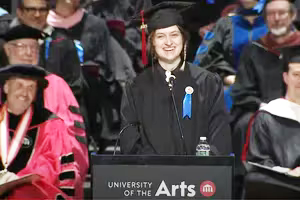
Years ago the University of the Arts closed their fashion program. We were told, after paying our spring tuition, that the program would close at the end of that spring semester. In the end I was better off. To continue would have been a waste of money. Trained in the industry, I learned from European master tailors, the top grader in Philadelphia, and the top layout artist at Alfred Angelo’s how industry drafts, drapes, fits, grades, and sews. Almost immediately I was setting up work for apparel factories.
…College and small university closures or mergers are happening about once a week this year, mostly in the Northeast and the Midwest, as many schools still have sharply lower enrollment and higher expenses than before the pandemic. There’s no relief in sight. Harold Brubaker, Staff writer for The Philadelphia Inquirer, June 8, 2024
The financial problems are just some of the problems in higher education. Too many professors are adjuncts, racing from one college to another in order to pay the bills, leaving no time to prepare for educating their students. Professors are paid based on the number of years they have taught and how many degrees they have. Whether they are good teachers and have excellent reviews from their students is not considered. Needless to say, if a professor is proficient, the jealousy and politics are horrific. Those experienced in industry may love to teach, but quickly find good reasons to leave their teaching positions.
…there are also questions around the value of higher education when debt levels and repayment rates are considered. Median student debt levels have climbed by 45 percent since 2006, while repayment rates have dropped by 24 percent since 2009 (Exhibit 2). The situation appears to be worsening; in 2016, only 6 percent of students were at colleges where students left with moderate debt and managed high repayment rates, compared with 54 percent in 2009. The situation is even worse for students who incur debt but don’t graduate and, therefore, don’t benefit from the income-raising advantage of a degree. www.mckinsey.com/industries/education/our-insights/
Is a college education really worth the money? One example is fashion education, one of the worst majors anyone can take. Many fashion departments are hiring off the street, as fashion graduates have so much to unlearn and such unrealistic expectations, that hiring them is a liability. Work as a designer is hopelessly insecure. However, the industry pays technical designers well, far better than the colleges pay their fashion professors. Technical designers draft and correct the patterns, check their fit, grade them, and set the patterns up for factory production. Many fashion students aren’t too interested in this, as it’s hard work. Technical design also requires an understanding of how the industry sews, which many professors don’t know. If they did work in industry, they were probably designers or pattern makers, part of the management that union shops prevent from using the machinery. Home sewing – out of date for over 100 years, is taught in most college programs. It is NOT used in industry. Industrial sample makers, who know industrial sewing, are not hired to teach sewing or anything else in college because almost all do not have college degrees. For many, probably most, a degree in fashion design means huge debt and not much chance of ever working in industry.

When I taught in college I audited the other fashion courses. Appalled, I wrote my program and its supporting books for students with no sewing experience. There are no books like mine on the market because they present how the industry drafts and sews. Fashion is an engineering discipline. It’s complicated and involved, it’s not easy, but most can learn it if they have good instructions. What’s available on the market is out of date home-sewing books, YouTube instructions that don’t really work, blog posts, and other attempts by home sewers who think they have figured out some of the various steps required to achieve professional results. That better information hasn’t been made available is appalling. The reason the industry hasn’t made this information available is because it’s line assembly. Most, even in the industry, don’t know how it all goes. Most factories don’t cross train as it isn’t cost efficient.
Written and tested in continuing-professional education college courses here in Philadelphia over a period of 30 years, my students who wished to work in industry got really good jobs that paid six figures or more.
One of my students was told at her first interview in the industry, There is no way you could possibly know all this. She was hired two days later and continues to work in industry. Another student decided which company got the orders from Jones of NYC, her third day on this, her first job in industry. She now has an office in Manhattan that overlooks the city.
Want to learn the skills you will need in industry? The information is available on my website. Private lessons and books are both available. The cost will be far less than what you would pay for a fashion degree. Whether or not you ever work in industry, you will have the professional skills you need to make beautiful clothing that fits. Take a look: https://LaurelHoffmann.com
Thanks for reading. Your comments are most welcome, Laurel
LaurelHoffmann-YouTube
https://laurelhoffmann.com/
https://www.facebook.com/CFashionEdu
https://www.linkedin.com/in/laurelhoffmann/
https://phillycam.org/project/creating-fashion
https://www.instagram.com/laurelhoffmann4015/
RSS Feed: https://laurelhoffmann.com/blog/
https://www.ravelry.com/projects/LaurelHoffmann
https://www.yelp.com/biz/laurel-hoffmann-oreland
https://www.thumbtack.com/pa/philadelphia/drawing-lessons/fashion-drafting-sewing-books-classes
e-mail
Phone: 215 884 7065
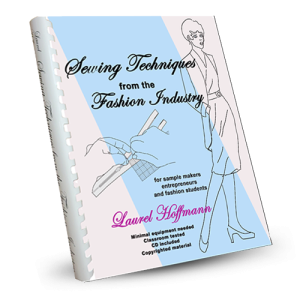
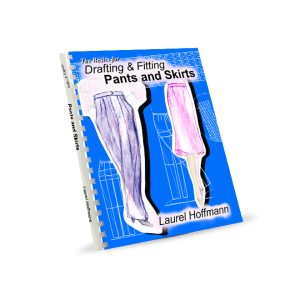
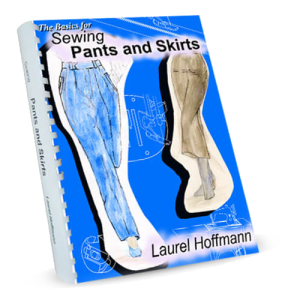
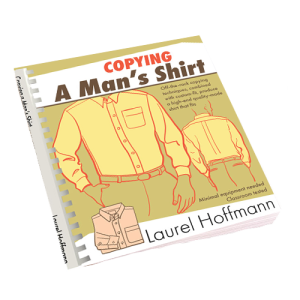
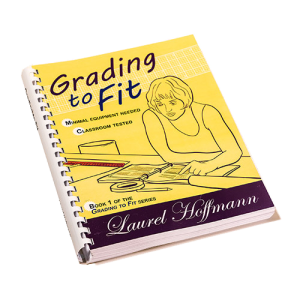


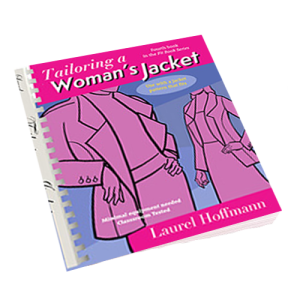
4 Comments. Leave new
Great article Laurel. Sooo true!
Thank you, Ellen.
It was such a pleasure to make this video with you. In today’s world it is reassuring to know someone with such a kind spirit and determination to help make the world a better place for others. Laurel
Thank you.